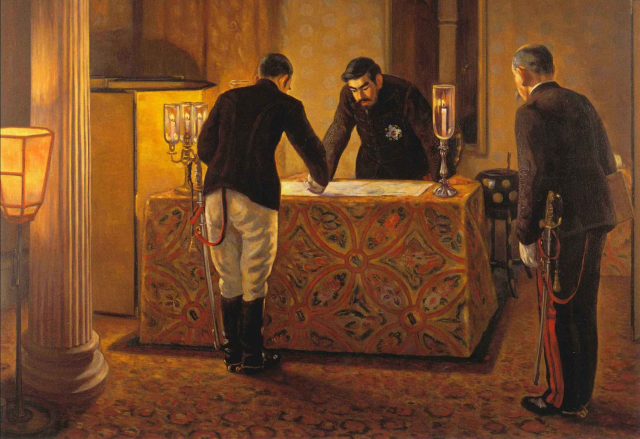The Meiji Restoration

Social and political transformation
The Meiji Restoration was a political event that restored imperial rule to Japan in 1868 under Emperor Meiji. Although there were ruling emperors before the Meiji Restoration, the events restored practical power to, and consolidated the political system under, the Emperor of Japan. The Restoration led to enormous changes in Japan's political and social structure and spanned both the late Edo period (often called the Bakumatsu) and the beginning of the Meiji era, during which time Japan rapidly industrialised.
In this podcast, Dr Chinami Oka (University of Oxford), examines the development of Japanese society from the end of the Tokugawa period, through the Meiji Restoration, and into the early 20th century. Dr Oka discusses the role of grass roots movements in Japanese society that had been developing for over a century before the restoration, and challenges interpretations, that explain the movement/revolution through the lens of western modernity. Dr Oka also talks about some of the fascinating work on Japan’s transnational relationships in the 19th and 20th century and illustrates this through figures such as Itō Noe (anarchist, social critic, author, and feminist), Arai Ōsui (former samurai, philosopher and educationalist), and Tanaka Shōzō (politician and social activist, and is considered to be Japan's first conservationist.)
1. Japanese society, the state, and its international relationships towards the end of the Tokugawa period?
2. How did Japanese thinkers respond to the challenges of that time?
3. What was the Meiji Restoration? Who were its leaders?
4. New perspectives: The Meiji Restoration as a result of grass roots changes in Japan.
5. How smooth was the process of the Meiji Restoration? Was there resistance?
6. What was the impact of the Unequal Treaties? How did Japan emerge as a major power in the international arena?
7. Transnational Japan and the cultural and intellectual impact of opening Japan to the wider world.
8. Itō Noe and Arai Ōsui.
In order to access the full content of the podcasts please Login or Join the HA.

